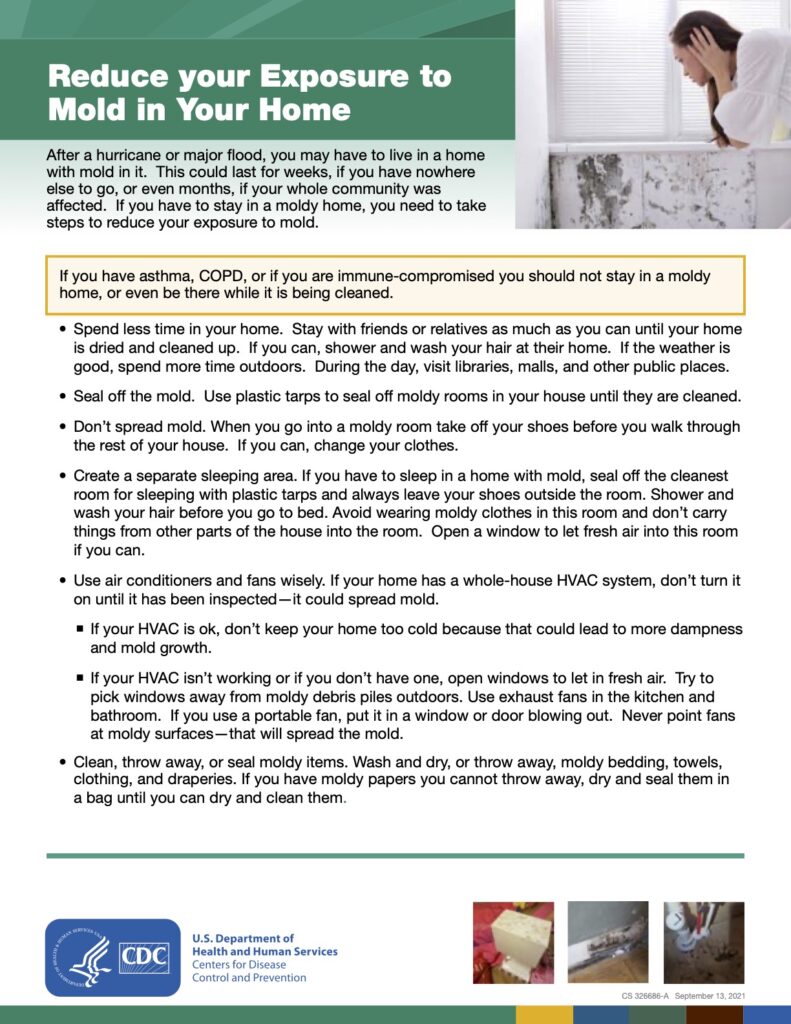After a hurricane or major flood, you may have to live in a home with mold in it. This could last for weeks, if you have nowhere else to go, or even months, if your whole community was affected. If you have to stay in a moldy home, you need to take steps to reduce your exposure to mold.
If you have asthma, COPD, or if you are immune-compromised you should not stay in a moldy home, or even be there while it is being cleaned.
- Spend less time in your home. Stay with friends or relatives as much as you can until your home is dried and cleaned up. If you can, shower and wash your hair at their home. If the weather is good, spend more time outdoors. During the day, visit libraries, malls, and other public places.
- Seal off the mold. Use plastic tarps to seal off moldy rooms in your house until they are cleaned.
- Don’t spread mold. When you go into a moldy room take off your shoes before you walk through the rest of your house. If you can, change your clothes.
- Create a separate sleeping area. If you have to sleep in a home with mold, seal off the cleanest room for sleeping with plastic tarps and always leave your shoes outside the room. Shower and wash your hair before you go to bed. Avoid wearing moldy clothes in this room and don’t carry things from other parts of the house into the room. Open a window to let fresh air into this room if you can.
- Use air conditioners and fans wisely. If your home has a whole-house HVAC system, don’t turn it on until it has been inspected—it could spread mold.
- If your HVAC is ok, don’t keep your home too cold because that could lead to more dampness and mold growth.
- If your HVAC isn’t working or if you don’t have one, open windows to let in fresh air. Try to pick windows away from moldy debris piles outdoors. Use exhaust fans in the kitchen and bathroom. If you use a portable fan, put it in a window or door blowing out. Never point fans at moldy surfaces—that will spread the mold.
- Clean, throw away, or seal moldy items. Wash and dry, or throw away, moldy bedding, towels, clothing, and draperies. If you have moldy papers you cannot throw away, dry and seal them in a bag until you can dry and clean them.
Produced and published by the CDC’s National Center for Environmental Health (NCEH), Last Reviewed: November 14, 2022
Printable version of page:



